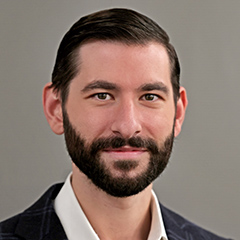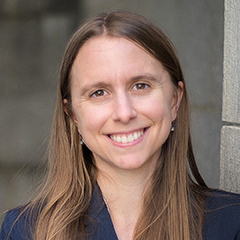Project Overview
To evaluate the labor market impact and cost effectiveness of a pioneering Washington, DC initiative to address the pay gap between child care and early childhood education educators and K-12 teachers.
The Bezos Family Foundation, Klingenstein Philanthropies, and DC Action are supporting outcome and benefit-cost evaluations of the Early Childhood Educator Pay Equity Fund to contribute to the growing evidence base surrounding its impacts on the child care and early education sector and inform policy and funding discussions.
- Center for Benefit-Cost Studies in Education (CBCSE), University of Pennsylvania
- National Workforce Registry Alliance (NWRA), Buffett Early Childhood Institute
- DC Office of the State Superintendent of Education (OSSE), Division of Early Learning



The PEF was created to bring child care and early education (CCEE) educator salaries in line with similarly trained and certified public school teachers in Washington, DC. Since 2022, the PEF has provided educators with pay supplements, and in 2023, began offering health insurance through the HealthCare4ChildCare initiative. Funded by the Bezos Family Foundation, the Klingenstein Philanthropies, and DC Action, Mathematica is conducting the Early Childhood Educator PEF Impact and Cost Effectiveness (PEF Impact) Study to help inform discussions among researchers, policymakers, and community leaders about the effectiveness of this program. PEF Impact includes analysis of the program’s impact on CCEE labor market and workforce outcomes, as well as benefit-cost analysis conducted in partnership with CBCSE to determine the economic value of the program.
Early study findings show that the PEF increased CCEE labor supply by about 7 percent in its first two years, translating to nearly 1,500 additional child care slots in the District. Findings from a benefit-cost analysis of the program in 2023 suggest that although it requires a substantial commitment of resources, it generates significant benefits that exceed its costs, with a one-year return on investment of 23 percent.
Notable Public Coverage
- Explore a case study from Results for America that provides a look at the results and accomplishments of the PEF and cites Mathematica’s research related to the program.
- Read an article and listen to an audio segment by WAMU that references Mathematica’s research on the impacts and cost-effectiveness of pay supplements for child care and early education workers in DC.
- Read an article in the Washington City Paper that cites Mathematica’s research showing that DC child care programs hired more workers than they could have without the PEF, with benefits emerging after less than one year of the program.
- Read an article and listen to NPR radio segments here and here that refer to Mathematica’s research on the one-year return on investment of the PEF.
Mathematica’s high-quality research provided timely and actionable evidence about the impacts and cost-effectiveness of DC’s first-of-its-kind approach to improving early childhood educator compensation. This evidence base is important to inform policy decisions.
Evidence & Insights From This Project

Investing in Pay Parity Program Pays Off for Early Childhood Educators in DC
A major public investment to boost pay for child care and early education educators in Washington, DC, has strengthened staff recruitment and retainment and produced benefits that exceed costs, according to new research from Mathematica.
Learn MoreEfficiency Meets Impact.
That's Progress Together.
To solve their most pressing challenges, organizations turn to Mathematica for deeply integrated expertise. We bring together subject matter and policy experts, data scientists, methodologists, and technologists who work across topics and sectors to help our partners design, improve, and scale evidence-based solutions.
Work With Us


